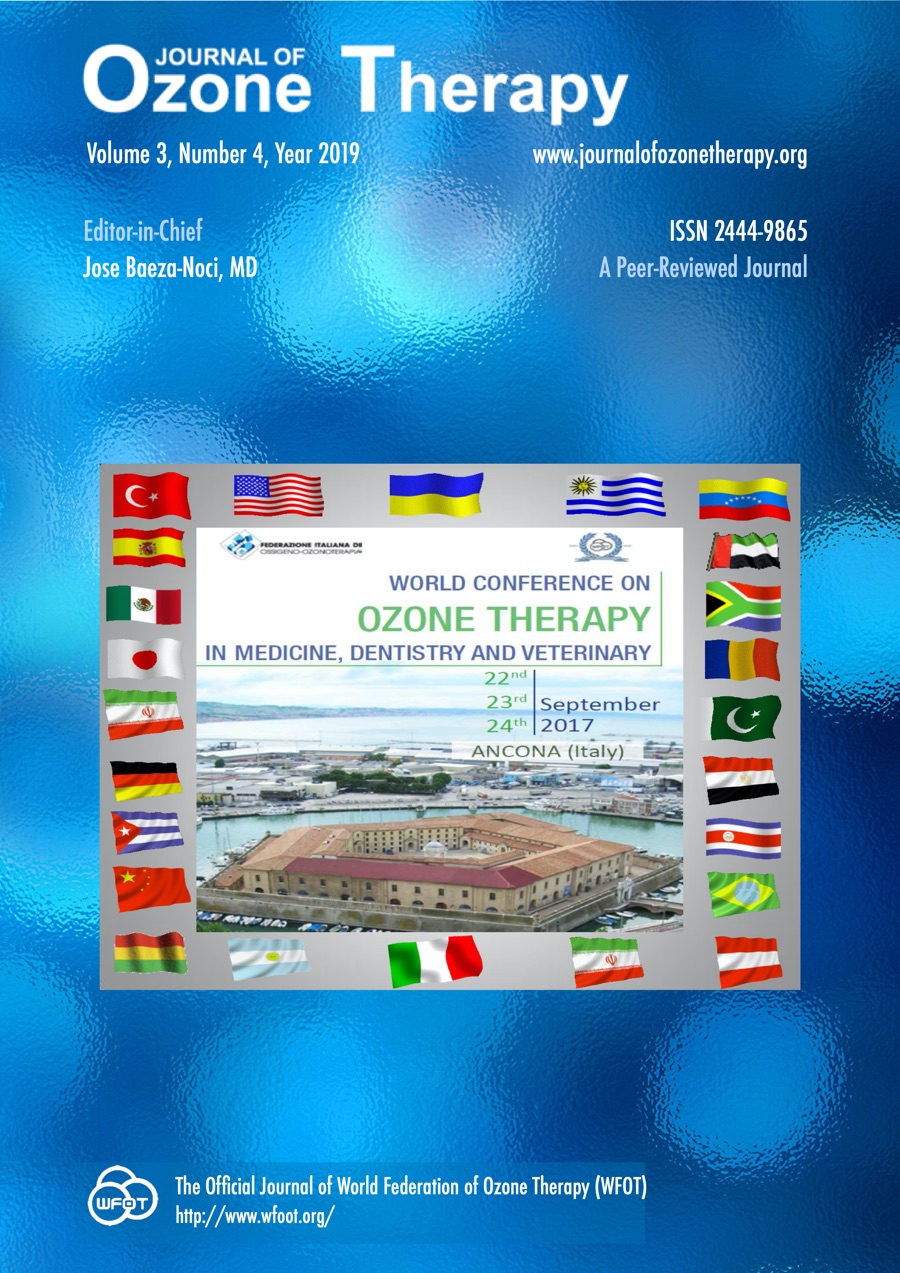Ozone Therapy as treatment for severe cases without good evolution in ophthalmology [abstract]
DOI:
https://doi.org/10.7203/jo3t.3.4.2019.15513关键词:
ophthalmology, ozone therapy 摘要
摘要
PURPOSE: In ophthalmology many diseases lead to irreversible blindness, something that implies millions of dollars in care because people with these difficulties loose their autonomy, becoming dependent in all their everyday activities.
This presentation will focus on clinical cases of the following pathologies treated with Ozone Therapy because all these were already being treated in a conventional way without signs of improvement. They are primary open-angle glaucoma, age-related macular degeneration, diabetic retinopathy, occlusion of the central retinal artery, facial paralysis and herpetic polyneuropathy associated with orbital apex syndrome.
CASE PRESENTATION: As an example, a patient, 73 , female, insulin-dependent diabetes for 10 years, with primary open angle glaucoma, diabetic retinopathy with various laser photocoagulations, vitrectomies and intravitreal injections in both eyes (BE). Visual acuity (VA) of 20/200 in right eye (RE) and 20/100 in left eye (LE).
Subjected to the facectomy in RE and with cataract in LE. The fundoscopy was stable in BE. The VA went to 20/200 on 1st day of postoperative period and remained stable until 21st day. After integrative treatment with Ozone Therapy the patient got a VA of 20/60-2 in RE and 20/40-2 in LE, restoring vision and improving her quality of life.
Furthermore, she stopped to be insulin dependent, only having to take oral medication.
CONCLUSION: The result shows that Ozone therapy should be a therapeutic tool to be associated with Ophthalmology because in many cases, including difficult treatment and evolution, it recovers visual acuity and re-establishes ocular physiology, promoting the maintenance of eye health and vision, contributing to the preservation of autonomy in the lives of patients.
 Downloads
Downloads
Downloads
已出版
How to Cite
-
摘要1099
-
PDF 368
期
栏目
License
Journal of Ozone Therapy applies the Creative Commons Attribution-NonCommercial 4.0 International License (CC BY NC 4.0) license to works we publish.
Under this license, authors retain ownership of the copyright for their content, but allow anyone to download, reuse, reprint, modify, distribute and/or copy the content as long as the original authors and source are cited. No permission is required from the authors or the publishers.
You may not use the material for commercial purposes.
Appropriate attribution can be provided by simply citing the original article, provide a link to the license, and indicate if changes were made.
You may do so in any reasonable manner, but not in any way that suggests the licensor endorses you or your use.




